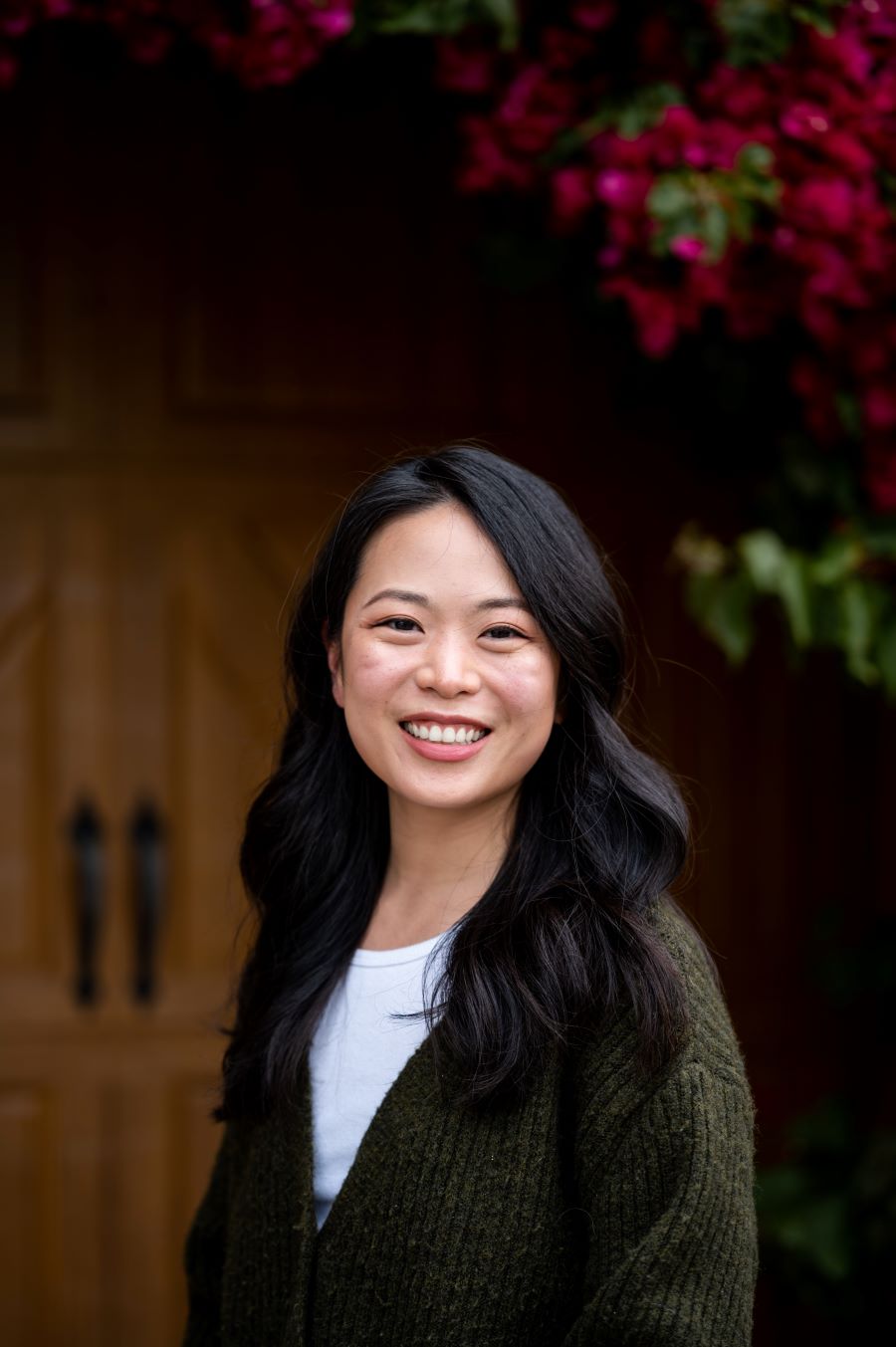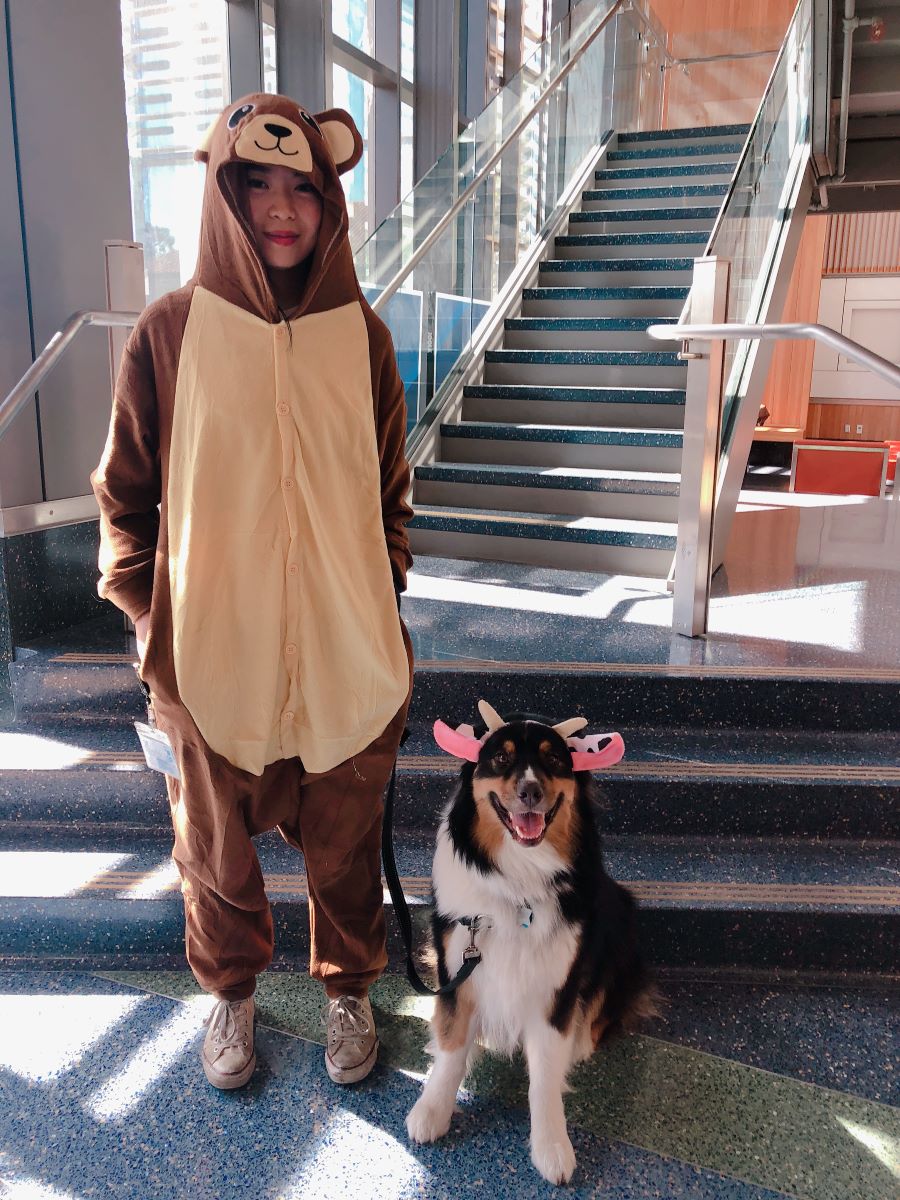
Postdoc Profile | Koning Shen
The NIH K99 Award: Smoothing the Way from Postdoc to Researcher
By Kirsten Mickelwait

One of the most coveted prizes in an academic career is the NIH K99 Pathway to Independence Award from the National Institute on Aging. In 2021, Koning Shen—currently a sixth-year postdoc in the Dillin Lab—received the prestigious award, which has supported her as she navigates the path from postdoc to independent researcher.
The K99 Award provides up to five years of support in two phases: The first phase (K99) offers up to two years of mentored support; additional funding for up to three years (R00) depends upon the scientist finding an independent research position. The award is limited to postdoctoral trainees who propose research that supports the mission of NIH institutes and centers.
Before coming to MCB, Shen earned her bachelor’s degree from Harvard University and her PhD from Stanford University, where she studied how protein misfolding and aggregation lead to toxicity that can cause Huntington’s disease.
In the Dillin Lab, she now studies how mitochondria recognize and respond to proteotoxic stress and how these mechanisms become compromised in other age-related diseases like Alzheimer’s and Parkinson’s. She’s also interested in inter-organelle communication and how this contributes to stress-response pathways in aging.
“As the powerhouse of the cell, mitochondria are very involved in regulating the cell's ability to mount stress responses,” she says. “It's been shown that many patients with neurodegenerative diseases have mutations in mitochondrial genes. The cells are no longer able to deal with the stress of aging, and that leads to all the degenerative phenotypes that we see in people with these diseases.”

Shen’s NIH K99 Award has brought several key benefits. While most postdocs apply for faculty positions in their fifth or sixth years, the K99 application must be submitted during year three or four. That forces you to think ahead, Shen says, to envision the kind of career you want and to organize your mentors, advisers, and collaborations. “Even if you don’t win the funding, it’s a beneficial exercise,” she says. “And if you do win, it’s a strong addition to your CV, signaling to faculty committees that you’re good at attracting funds.”
The mentorship aspect has been particularly valuable. As Shen assembled her advisory committee, she found it helped to prompt conversations and collaborations with faculty that she wouldn’t otherwise have initiated. “Because they were officially on my K99 advisory committee, it was almost an excuse for us to meet and made it easier to facilitate interactions and develop stronger relationships,” she says. Even more importantly, those connections have helped steer her science in more interesting directions.
Like graduate student and postdoc researchers everywhere, Shen found her path delayed by the pandemic, when labs were closed for long periods of time. She’s now beginning her job search for a research position at an R1 institution.
Does she have any advice for others interested in applying for the K99? “I think it’s crucial to start the process early because it's quite a lot of work,” she says. “It's also important to know that this award isn’t required to be successful on the job market. It’s a good exercise to be more forward-thinking about your future, but don’t drive yourself crazy about it. I know a lot of people who got jobs without one.”
Learn more about applying for the NIH K99 award. You can find out more about Koning Shen’s work at the Dillin Lab here.
Banner image: C. elegans adult hermaphrodite with labeled lysosomes in the intestine (Shen)
Back to Main Fall 2023 Newsletter Page
| Connect With Us! | ||||
 MCB X (formally Twitter) |
 LinkedIn Postdocs, PhDs, or Undergrads |
 Cal Alumni Network |
 Give to MCB |
|
